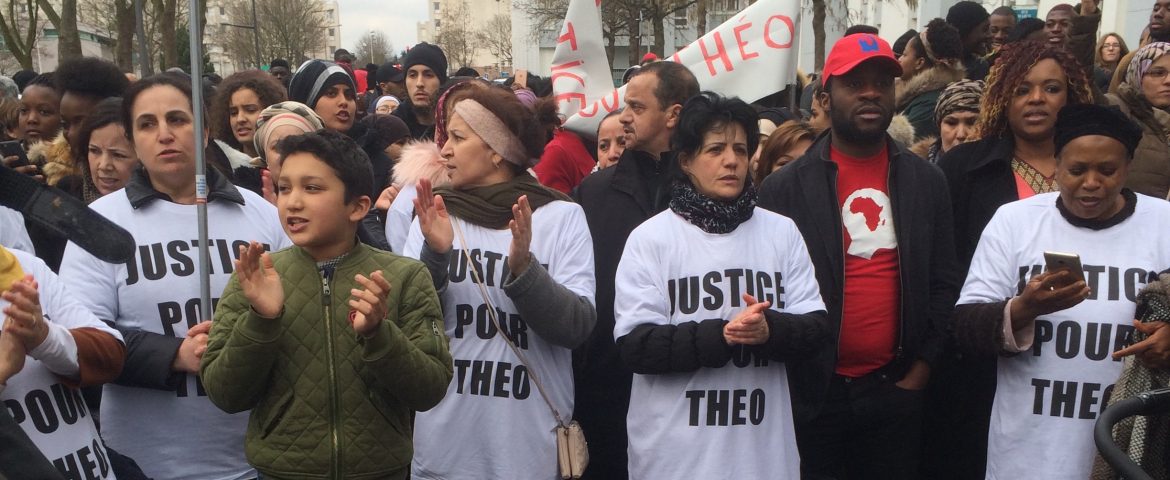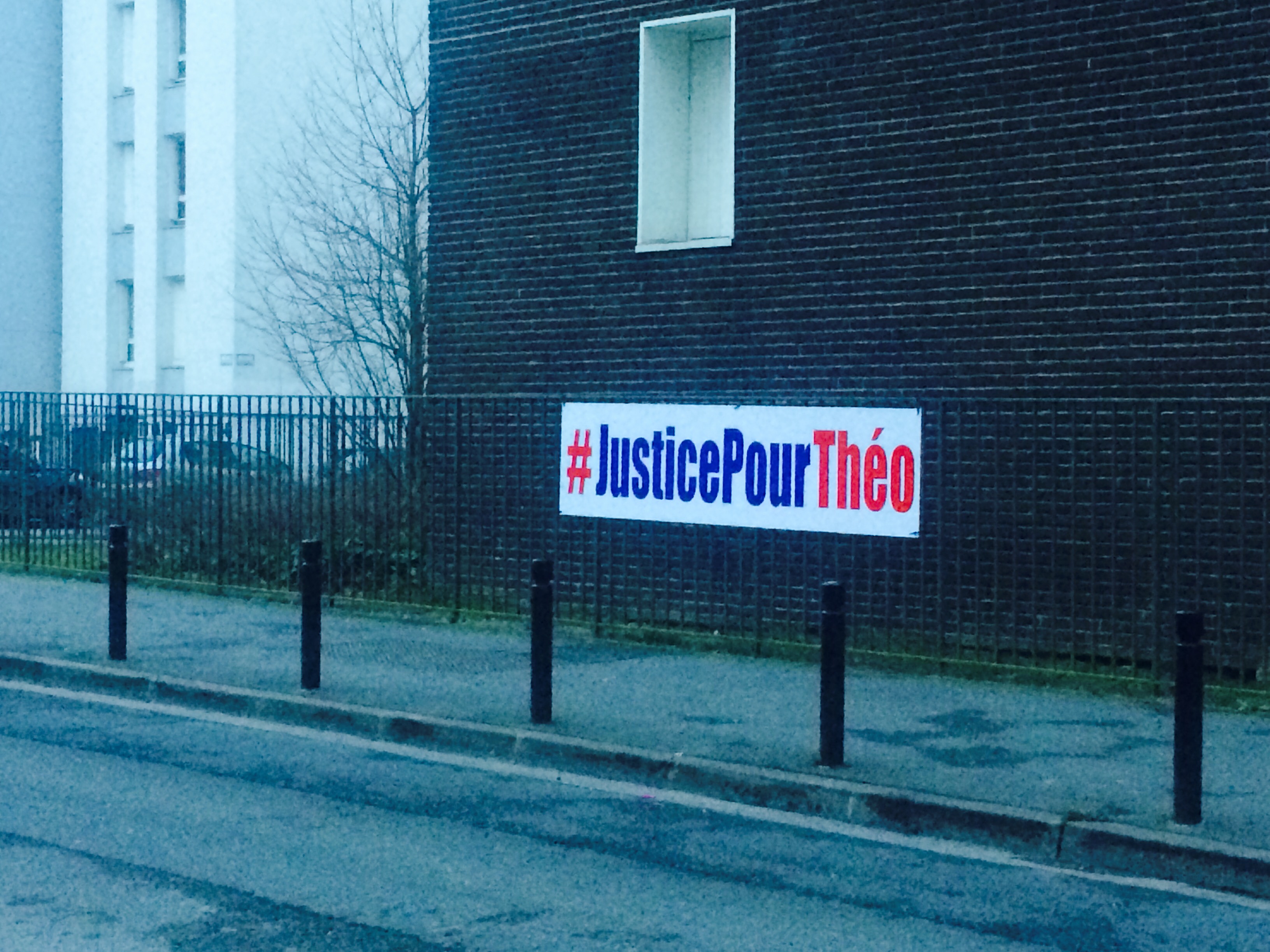
Tongues are starting to loosen after the sexual police aggression on Théo in Aulnay-sous-Bois, France. More young men regularly stopped for ID check have come forward to talk about the violence always more humiliating and sexual, the insults of the police forces. They feel lawlessly trapped. Only 5% of the young people violently searched after ID checks file a complaint.
Moreover, as the press release from feminist group Femmes Solidaires pointed out, “What this crime tells us…is when a man wants to humiliate and dominate another man, he resorts to the same type of brutality as the one used to dominate a woman: rape.” They also note the uneasiness of the media to accurately identify this crime. For Femmes Solidaires, in the scale of police violence, pushing a baton in the rectum of a young man is a most serious crime and feminists must name what happened to Théo and other young men with the right word: rape. They exhort people not to turn a blind eye on this crime and conclude, “Silence tortures, impunity kills, invisibility condemns the victim to relive the same crimes.”
In addition to using rape, the police forces use homophobic and racist slurs regularly. The word “bamboula”, commonly uttered by police, carries its own colonial history. During a TV program, a police union representative admitted that although this word could be considered an insult, it remained tolerable. The anchor immediately reacted, saying “no” it is intolerable. In fact, “bamboula” is undoubtedly racist. As historian Mathilde Larrère explained, Bamboula is the name of a drum, which name became an expression of colonial racism. As she clarified, racism was born from the violence of domination and enslavement of populations to justify this very violence.
These expressions of racism shed light on identity politics as a way to differentiate the rights-bearing population from the rest that loses rights and can be mistreated, attacked and insulted. The ID checks are expressions of identity politics and the use of rape the expression of masculinity as a brutal authority.
Recently, a court decision in Bobigny, asuburb of Paris, on a similar case that occurred in 2015 has clearly stated that from now on a rape with a baton or something else committed by a police officer or not will be judged as a rape instead of violence. That decision signals what many have lounged for: police will no longer be granted impunity.
This is not over and the mobilization against violence and sexual violence cannot end with this decision. More integrative measures should be taken to break the isolation and sense of abandonment of many “real” French residents who have been left out by the republic.
(Photo Credit: BondyBlog)
